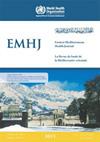欧洲地中海癌症网络为在地中海中低收入国家消除宫颈癌做出的贡献
IF 1.9
4区 医学
Q3 HEALTH CARE SCIENCES & SERVICES
引用次数: 0
摘要
背景:宫颈癌给中低收入国家(LMICs)带来了沉重负担。欧洲地中海癌症网络(EuMedCN)汇集了来自地中海国家的癌症专家和利益相关者,以促进可持续的癌症筛查,支持世界卫生组织《加速消除宫颈癌这一公共卫生问题的全球战略》的实施。目的:强调 EuMedCN 在减少地中海低收入国家宫颈癌预防和筛查机会不平等方面的建设性作用。方法:EuMedCN 成员通过研讨会和会议讨论了癌症预防和控制方面的新进展,以及如何最好地将世界卫生组织《加速消除宫颈癌这一公共卫生问题的全球战略》转化为地中海低收入国家的公共卫生政策。从而在选定的国家采取有针对性的行动。结果:在地中海低收入国家实施了七项优先行动,以改善宫颈癌筛查。EuMedCN 为有组织的筛查、新的试点技术和加强评估系统提供了支持。将宫颈癌筛查纳入其他疾病计划并促进多学科网络的发展,被视为实现世卫组织全球战略目标的关键。结论:EuMedCN 等国际网络有可能汇聚专家和利益相关者,分享经验并促进资源调动。它们可以为预防宫颈癌提供负担得起的协同解决方案。本文章由计算机程序翻译,如有差异,请以英文原文为准。
EuroMed Cancer Network contributions to eliminating cervical cancer in low- and middle-income Mediterranean countries
Background: Cervical cancer places a significant burden on low- and middle-income countries (LMICs). The EuroMed Cancer Network (EuMedCN) brings together cancer experts and stakeholders from the Mediterranean countries to promote sustainable cancer screening and support implementation of the WHO Global Strategy to Accelerate the Elimination of Cervical Cancer as a Public Health Problem. Aim: To highlight the constructive role of EuMedCN in mitigating inequalities in access to cervical cancer prevention and screening across the Mediterranean LMICs. Methods: Through its workshops and meetings, EuMedCN members discussed new developments in cancer prevention and control, and how best to translate the WHO Global Strategy to Accelerate the Elimination of Cervical Cancer as a Public Health Problem into public health policies in the Mediterranean LMICs. This led to targeted actions in the selected countries. Results: Seven priority actions were implemented to improve cervical cancer screening in the Mediterranean LMICs. EuMedCN supported organized screening, new pilot technologies and enhancement of evaluation systems. Integrating cervical cancer screening into other disease programmes and fostering multidisciplinary networks were promoted as key to achieving targets of the WHO global strategy. Conclusion: International networks, such as EuMedCN, have the potential to bring together experts and stakeholders to share experiences and catalyse resource mobilization. They can support affordable and synergistic solutions for cervical cancer prevention.
求助全文
通过发布文献求助,成功后即可免费获取论文全文。
去求助
来源期刊

Eastern Mediterranean Health Journal
HEALTH CARE SCIENCES & SERVICESPUBLIC, ENV-PUBLIC, ENVIRONMENTAL & OCCUPATIONAL HEALTH
CiteScore
3.30
自引率
4.80%
发文量
112
期刊介绍:
The Eastern Mediterranean Health Journal, established in 1995, is the flagship health periodical of the World Health Organization Regional Office for the Eastern Mediterranean.
The mission of the Journal is to contribute to improving health in the Eastern Mediterranean Region by publishing and publicising quality health research and information with emphasis on public health and the strategic health priorities of the Region. It aims to: further public health knowledge, policy, practice and education; support health policy-makers, researchers and practitioners; and enable health professionals to remain informed of developments in public health.
The EMHJ:
-publishes original peer-reviewed research and reviews in all areas of public health of relevance to the Eastern Mediterranean Region
-encourages, in particular, research related to the regional health priorities, namely: health systems strengthening; emergency preparedness and response; communicable diseases; noncommunicable diseases and mental health; reproductive, maternal, child health and nutrition
-provides up-to-date information on public health developments with special reference to the Region.
The Journal addresses all members of the health profession, health educational institutes, as well as governmental and nongovernmental organizations in the area of public health within and outside the Region.
 求助内容:
求助内容: 应助结果提醒方式:
应助结果提醒方式:


